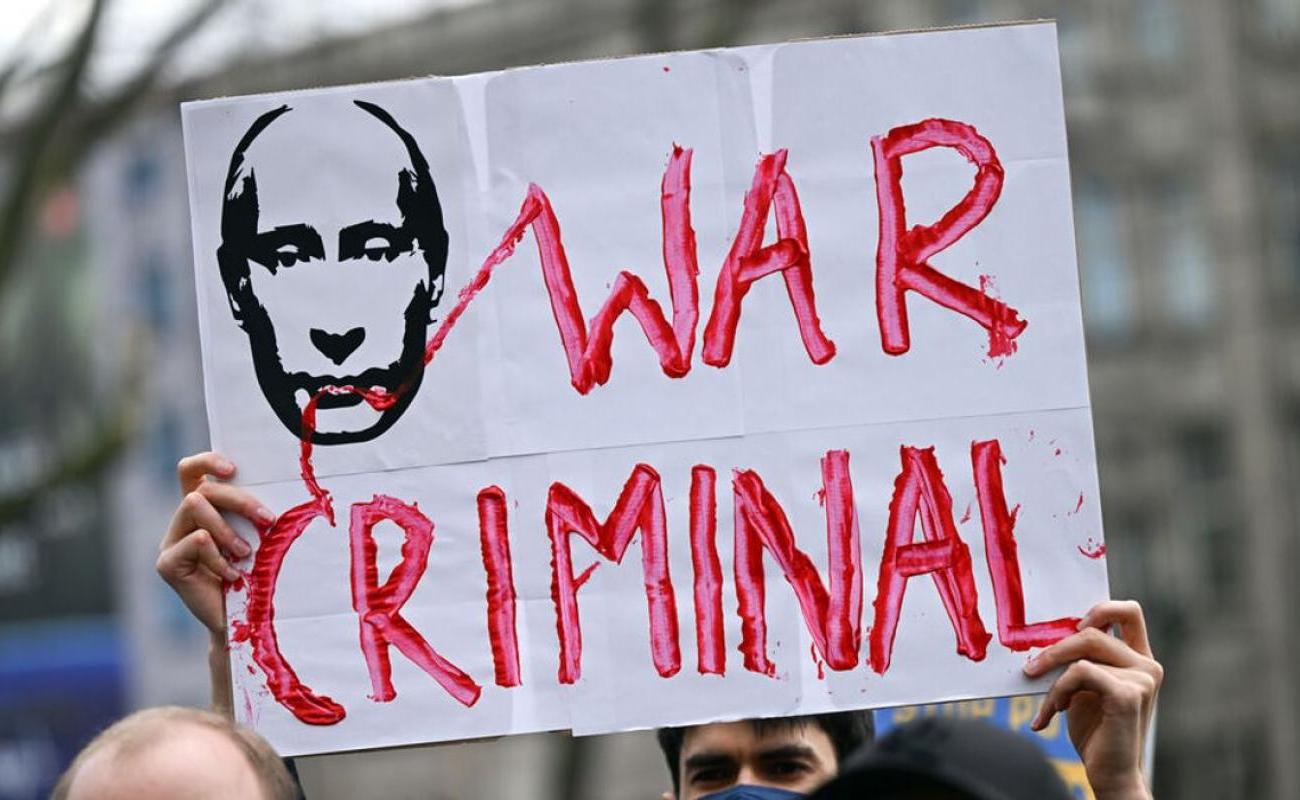Ukraine conflict: What war crimes is Russia accused of?

Ukraine's president, Volodymyr Zelensky, says Russian troops may have committed more than 400 war crimes in Kherson before abandoning the city.
According to Ukraine, at least 34,000 possible war crimes have been carried out by Russian forces since February.
What is a war crime?
"Even war has rules", as the International Committee of the Red Cross says.
These are set out in treaties called the Geneva Conventions along with other international laws and agreements.
Military forces cannot deliberately attack civilians - nor the infrastructure that is vital to their survival.
Some weapons are banned because of the indiscriminate or appalling suffering they cause - such as anti-personnel landmines and chemical or biological weapons.
The sick and wounded must be cared for - including injured soldiers, who have rights as prisoners of war.
Serious offences such as murder, rape or mass persecution of a group are known as "crimes against humanity" or in some circumstances "genocide".
What does Ukraine say happened in Kherson?
President Zelensky says investigators in Kherson region have already documented more than 400 war crimes committed by Russian forces during their occupation.
"Bodies of dead civilians and servicemen have been found," he said, in a televised address. "The Russian army left behind the same savagery it did in other regions of the country it entered."
Residents in parts of the Kherson region occupied by Russia have been telling reporters about killings by Russian troops, and abductions of civilians, but the BBC has not verified such reports independently.
Russia denies its troops intentionally target civilians or have committed atrocities in occupied areas.
What other war crimes is Russia said to have carried out in Ukraine?
Ukraine's prosecutor general, Andriy Kostin, said in September that his office has documented 34,000 potential war crimes committed by Russian forces, and is mounting a case for genocide.
Mass burial sites have been found in several parts of Ukraine previously occupied by Russian troops, including some holding civilian bodies showing signs of torture.
- In April, over 400 bodies of civilians were found in Bucha, a town on the outskirts of Kyiv
- In September, 450 bodies - mostly of civilians - were found in mass graves in Izium, in Kharkiv region
- In March, Russian forces carried out an air strike on a theatre in Mariupol which was being used as a refuge for children
- A hospital in Mariupol was also struck in March
How can war crimes be prosecuted?
Ukraine's courts have already prosecuted one Russian soldier.
21-year-old Russian tank commander Vadim Shishimarin was jailed for life for shooting an unarmed civilian, 62-year-old Oleksandr Shelipov, in the north-eastern village of Chupakhivka, a few days after the invasion began.
It may prove easier, however, to prosecute individual soldiers for war crimes than military commanders or senior politicians.
Hugh Williamson of Human Rights Watch says establishing the "chain of command" is very important for any future trials, including whether a leader authorised an atrocity - or turned a blind eye to it.
The International Criminal Court (ICC) is investigating war crimes and crimes against humanity in Ukraine - going back as far as 2013, before Russia's annexation of Crimea from Ukraine.
Its chief prosecutor, British lawyer Karim Khan, believes there is a reasonable basis to believe war crimes have been carried out.
However, the ICC has no powers to arrest suspects, and Russia is not a signatory to the agreement which set up the court - so it is unlikely to extradite any suspects.
The ICC generally takes over prosecutions for war crimes in countries where the court systems are too weak to carry out the prosecutions themselves.
So far, however, it seems Ukraine's courts have been able to mount their own cases. By the end of August, its prosecutor general had charged 135 suspected war criminals.
The ICC can bring a prosecution against political leaders for "waging aggressive war". This covers an unjustified invasion or conflict not undertaken in self-defence.
However, Professor Philippe Sands, an expert on international law at University College London, says the ICC couldn't prosecute Russian leaders such as President Vladimir Putin for this - again, because the country isn't a signatory to the court.
In theory, the UN Security Council could ask the ICC to investigate this offence. But Russia could veto this.
Prof Sands says world leaders should set up a one-off tribunal to prosecute the crime of aggression in Ukraine.
